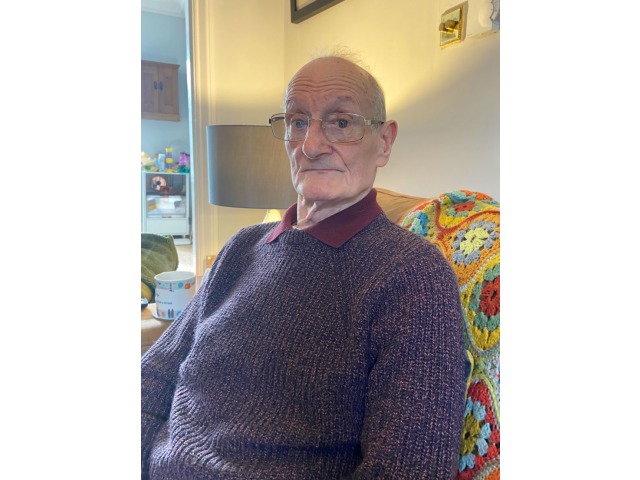Norman was born just six days in to WW2, his father had been called up and his mother was left to bring both he and his two year old brother up. With his father invalided home in 1940, five more siblings arrived making them a family of nine living in a two bedroom flat on Lord Street in Douglas, he grew up in what we would call abject poverty today but knew no different - Norman’s only gripe was the lack of space for him to do his homework from Hanover Street School of which there was plenty. An enthusiastic academic, his favourite place to be was on the window sill with the curtains pulled around him with a book and his family knew him as ‘The Professor’.
The Lord Street flats were a real community with neighbours chipping in for doctor’s fees and everyone taking their turns to sweep and mop the landing, stairs and common areas meaning the buildings were spotlessly clean. During the war years the harbour area was very busy with Naval and RAF launches, Norman’s experiences of life and characters on the streets and along the quayside in Lower Douglas during wartime tell of a very different age where children were given much greater freedom and Douglas bustled, especially on market day. Norman’s uncle, John Kennish, had a motor launch and rowing boats and Norman could row a boat before he could ride a bike, despite the poverty, this was a childhood full of fun.
Norman later moved to Pulrose where they gained a precious third bedroom, he talks of leaving school at fifteen to work as a butcher before six years National Service in the Army. On his return to the Island he met his wife and became a prison officer, working for just under twenty years at Victoria Road Prison and living in one of the prison cottages on site. This twenty years covered many changes in the prison service including compulsory twice weekly church attendance being removed and the abolition of the birch, he has many stories of his experiences there including being on ‘death watch’ for prisoners who had been given the death penalty (which was always reprieved), of the ten murders that happened in that time on the Island and of many ghostly goings on in the building itself. Norman researched in depth the prison service on the Isle of Man, writing a book, ‘Keys and Cuffs’ that was published in 2009.
Retiring early in 1986 on the grounds of ill health he spent eighteen more years working as a Conveyancer. Norman is the fifth generation of his family to be involved in the military and in his retirement he is still much involved in the Royal British Legion, amongst many others, he has lived a very full life - from very difficult beginnings.
Interviews
When you click play on one of the interviews below there will be a slight delay as the audio file is downloaded. Large files or slow internet connections will increase the length of this delay.
-
Interview with Norman Quilliam

